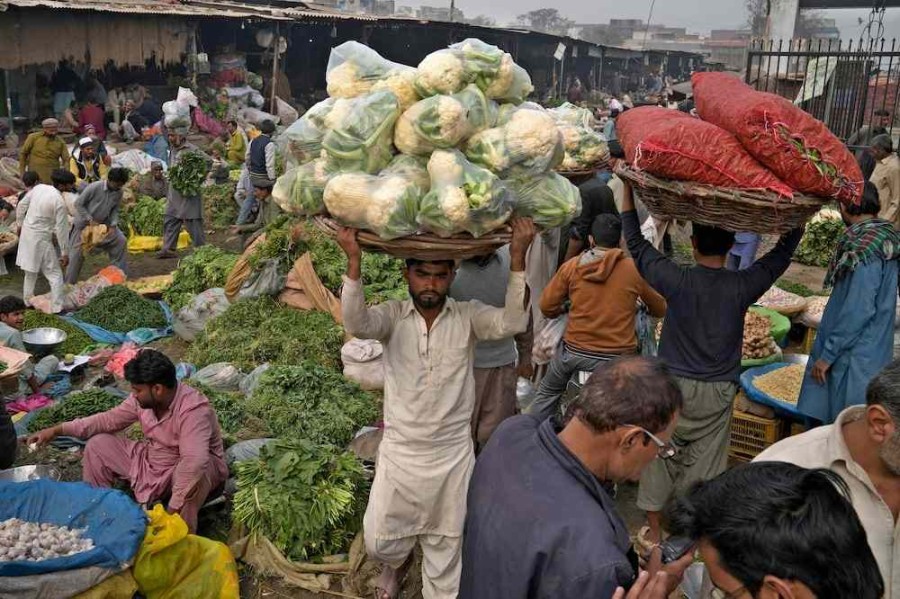Global economy improving but challenges persist, G24 says

The global economic landscape has somewhat improved but still remains “uncertain” due to challenges faced by many countries, the G24 said on Tuesday. Some of the hurdles include reduced access to finance, stringent external financing conditions, elevated debt levels and inflation.
The international group of 24 nations, whose finance ministers and central bank governors met in Washington on Tuesday, called for initiatives to strengthen the financing available to developing countries to deal with challenges.
Finance ministers and central bankers from around the world have descended on Washington for the International Monetary Fund and World Bank Spring Meetings.
The G24 demanded reforms of the IMF's short-term financing tools, a boost in concessional financing for low-income nations, a reassessment of its fees and surcharges, and a greater
allocation of Special Drawing Rights from donor countries to those in need. The bloc said these steps would offer more financing to member countries to “mitigate shocks and invest in climate action and sustainable development”.SDRs are the IMF’s unit of exchange, made up of a basket of the world’s five leading currencies – the dollar, the euro, the yuan, the yen and the British pound.
While the global economy showed a resilient 2023, the IMF said those gains were not felt equally, with low-income countries still experiencing the effects of the Covid-19 pandemic.
The multilateral lender expects the global economy to improve from last year’s 3.1 per cent growth to 3.2 per cent in 2024. The G24 members have called for an IMF quota realignment that would boost the representation of emerging market and developing economies.
They also pressed for “more concessional lending, especially for global public goods, and for a just energy transition”. But members expressed concern about high and increasing public debt levels among developing countries.
They suggested a “comprehensive and responsible approach” to support countries in reducing high debt levels and debt service costs.
Global debt jumped significantly, especially in emerging and developing economies, after the coronavirus pandemic hit in 2020. Debt levels among low-income countries have also soared since central banks raised interest rates in response to rising inflation.
Global debt reached $235 trillion in 2022, $200 billion above its 2021 level, the IMF said in a report in September. The IMF, World Bank, bilateral and private creditors, and borrowing countries are due to meet for talks during the global sovereign debt roundtable in Washington on Wednesday.
Previous Story
- Unlocking Opportunities in the Thriving China Business Landscape
- Oil posts second weekly gain on US economic...
- Will India emerge as a global economic powerhouse...
- Nikkei rises 28% in 2023 for highest year-end...
- UAE Central Bank raises 2024 growth forecast for...
- US manufacturing mired in weakness, economy heading for...
- Global economy will continue to slow in 2024,...
- Giant batteries drain economics of gas power plants